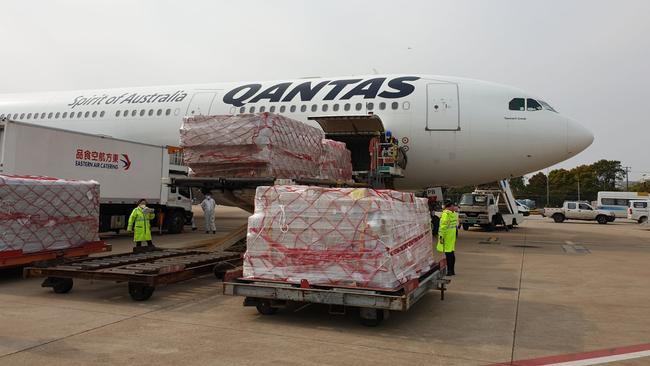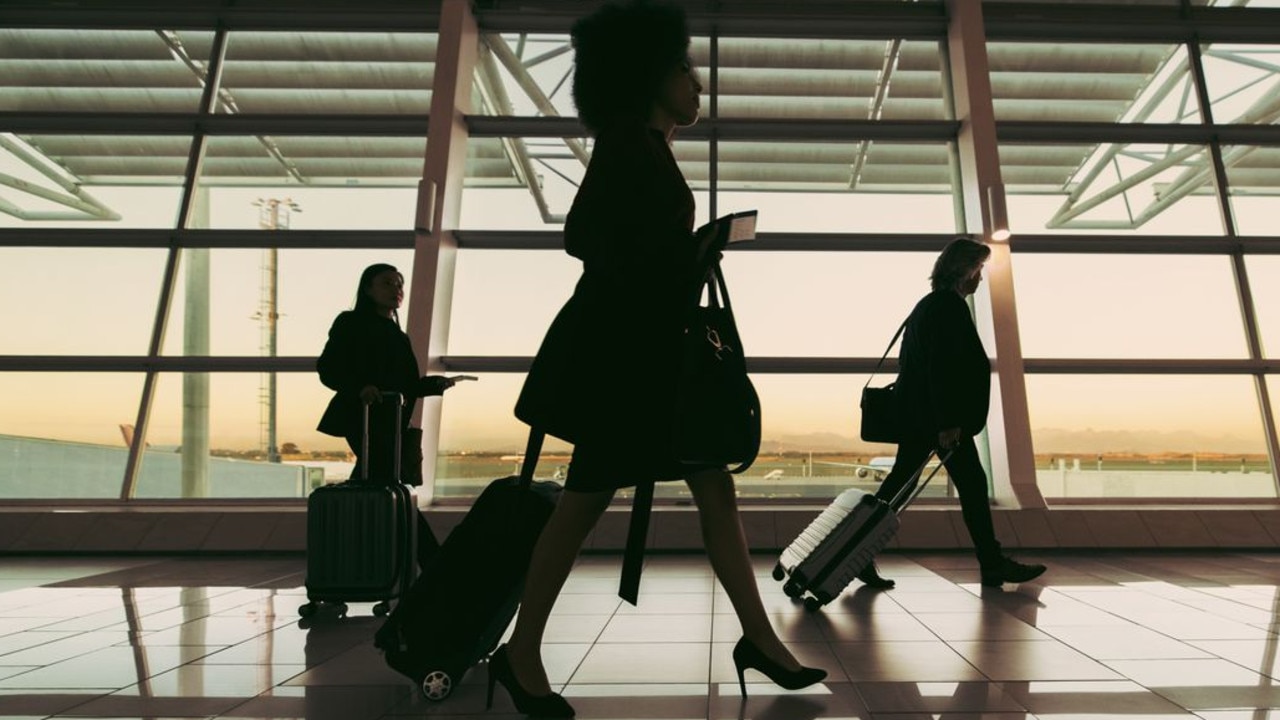Covid-19: Freight transport slump hits exporters
A crippling double crisis is threatening to wipe out hundreds of Australian exporters, with air and sea freight space in desperately short supply.

Australia’s exporters are in the grips of a crippling double crisis as airfreight capacity evaporates at the same time as containerised shipping services fall well short of demand.
The Export Council of Australia has raised the alarm, warning hundreds of small and medium enterprises would struggle to retain their international markets without cost-effective transport.
Chair Dianne Tipping said the halving of passenger caps on international flights would only make life tougher for exporters already paying 35 per cent more for airfreight than pre-Covid.
“Prior to the Covid crisis, 85 per cent of airfreight went in the belly of commercial passenger flights but of course we’re not seeing a lot of those planes anymore and they haven’t been replaced by cargo planes,” Ms Tipping said.
“Those flights that are operating empty or with very few passengers still have to cover costs so the cargo rates are higher, they’re very much higher.”
Although exporters were grateful to the federal government for its support through the International Freight Assistance Mechanism, Ms Tipping said the subsidised cargo flights were limited to perishable goods and medical equipment.
“There’s all sorts of reasons why the aircraft need to concentrate on taking those products but it does leave less available space for the other products that had been using airfreight,” she said.
“The extenuating circumstances are now that sea freight is in crisis. We have exporters waiting two months to get space on a ship and then not getting the right containers.”
Stories of hardship were flooding into the Export Council, from a vegetable grower unable to secure a container or space on ships, to a small skincare supplier who’d given up on exporting because of the skyrocketing cost.
“Early indications suggest exporters have already lost tens of millions of dollars due to delays, additional charges, penalties and loss of business,” said Ms Tipping.
“This is likely to be just the tip of the iceberg.”
The International Forwarders and Customs Brokers Association of Australia expressed similar concerns, warning “space availability on all freighter and passenger aircraft flights was at capacity from all origins”.
“Airfreight rates are … at two to six times pre-Covid depending on the origin and destination, and are not expected to ever return to pre-Covid levels when borders reopen and more passenger flights return to the market,” said air and sea freight forwarding manager Stuart McFarlane.
Queensland-based exporter of premium organic beef, OBE Organic, had customers in the US, Asia and the Middle East but was struggling to make deliveries within reasonable time frames.
Managing director Dalene Wray said the changing aviation landscape meant there was no reliability with airfreight, which had seen the firm pivot to sea freight.
But that was proving just as problematic with rates increasing five-fold and no guarantees chilled products would be shipped in a timely manner.
“If we can get an empty container we can fill it with meat but then we can’t get it on a ship,” said Ms Wray. “Australia’s success as an exporting country relies on access to markets and relationships with customers around the world. We need to be able to get our products to where they’re needed or we will lose those markets.”
Challenges facing exporters were already having a knock-on effect for other businesses, with abattoirs having to reduce slaughter rates, due to a lack of cold storage.
Mr McFarlane said the situation was not much better for importers.
Ms Tipping called on the government to look into the issue with appropriate seriousness and consider extending the International Freight Assistance Mechanism to include containerised sea freight.



